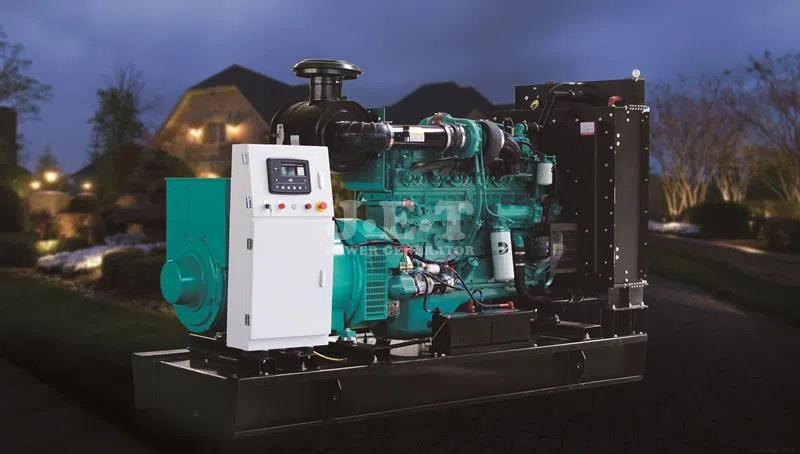What Are The Precautions For Starting A Diesel Generator?
- 25 - 03 - 2020
- 529
As a power generation device that starts quickly, is easy to operate and maintain, has low investment, and has strong environmental adaptability, diesel generators are widely used in various departments and related enterprises such as communications, mining, and road construction. Then, for it to start normally, we will Need to know what are the precautions for starting a diesel generator.

1, add cooling water to the water tank
Adding cooling water after starting the diesel generator will cause hot components such as cylinder liners and cylinder heads to burst or deform due to sudden cold. Similarly, if 100 ℃ boiled water is suddenly added to the cold body, the cylinder head and the body will be cracked. The correct method is: before Tianjin generator, you must add cooling water first, add warm water of about 60 ℃ to the diesel engine to preheat, and then start.
2. Supply oil according to regulations
We should not start fueling the generator when or after starting the diesel engine. We should connect the fuel pipe to the diesel engine before starting the diesel engine. The harm of not operating according to this regulation is: when starting the diesel engine, if we increase the throttle fuel supply first, fuel will be wasted, and the excess diesel will flush the cylinder wall to make lubrication between the piston, piston ring and cylinder liner Deterioration and aggravation of wear, and the residual oil flowing into the oil pan will dilute the oil and reduce the lubricating effect, resulting in incomplete combustion of excessive diesel in the cylinder and the formation of carbon deposits. The correct method is: warm up the engine first, then refuel with the throttle, and then start.
3.Do not pull the car to start
The diesel engine is pulled down and started when the cold car oil is thick, which will increase the wear between various moving parts, which will reduce the service life of the diesel engine.
4. Change lubricants and fuels on schedule
Different oil temperatures are used in winter and summer. In the high-temperature area in summer, if the lubricating oil with good high temperature resistance index (such as 40, 50, 60, etc.) is not replaced, the oxidation stability of the lubricating oil will be deteriorated, which will intensify its thermal decomposition, oxidation and polymerization, and will easily deteriorate. . At the same time, the viscosity of the lubricating oil will decrease with the increase of temperature, which will cause excessive consumption of the lubricating oil. In winter, if the low-viscosity lubricating oil and low-solidification diesel oil are not replaced in time, the internal resistance of the diesel engine is large, It is difficult, and at the same time, the wear of the moving parts is accelerated.
5.Do not use open flame to bake.
In order to prevent a fire, if a flame or coal fire is used, the oil pan of the diesel engine must be baked at a certain distance (30cm away), and the oil shaft should be slowly rotated to allow the oil to be evenly heated and lubricate all parts. If the ignition is started at the intake pipe of the diesel engine, the ashes and hard debris generated by the material combustion will be sucked into the cylinder, which will cause the intake and exhaust valves to close tightly and accelerate the wear of the cylinder. Zui’s good method is to add a water jacket heater to the diesel generator to maintain the temperature of the water tank and the cylinder at any time to ensure that the generator set can be started at any time.
6.Do not add engine oil directly to the cylinder
Adding engine oil to the cylinder, although it can play the role of sealing, pressurizing and warming, to facilitate the start of the diesel engine cold engine, but the engine oil cannot be completely burned, carbon deposits are easily generated, the elasticity of the piston ring is weakened, and the sealing performance of the cylinder is reduced. In addition, it will accelerate the wear of the cylinder liner, resulting in a decrease in the power of the diesel engine, making it more difficult to start, so the oil cannot be directly added to the cylinder.
